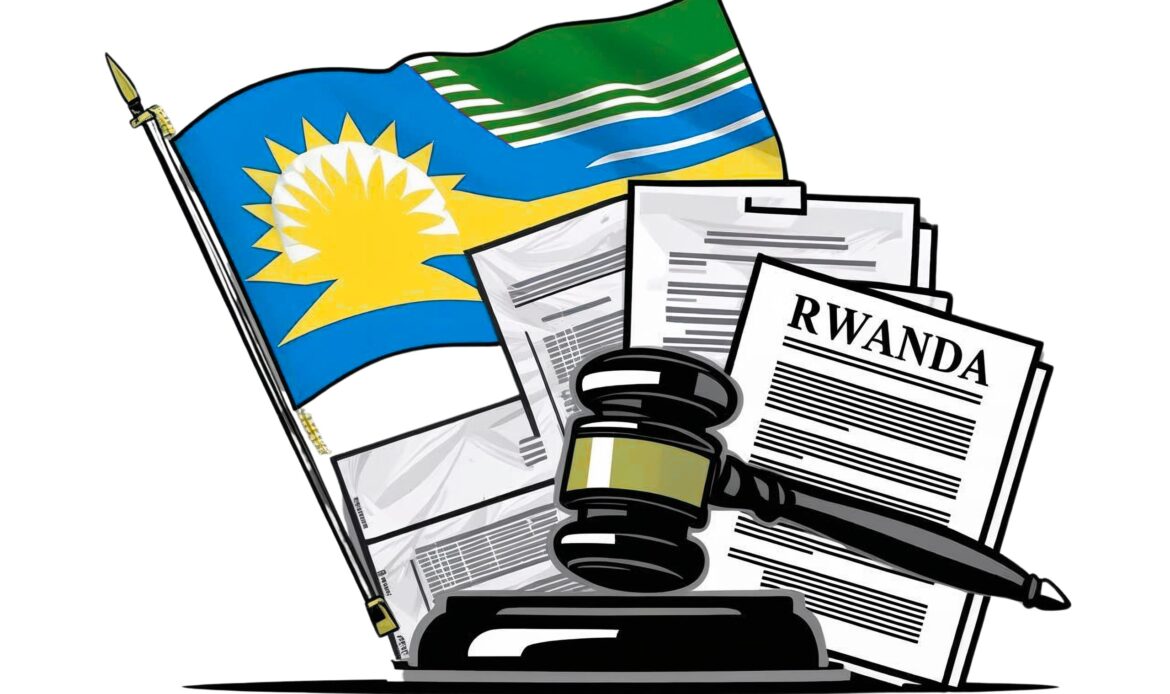Do You Need an Apostille for Rwanda? Key Legalisation Requirements Explained
- Go Lawyers
Apostille or Embassy Legalisation? Understanding Rwanda’s Position
When preparing Australian documents for international use, many people assume that an apostille is all that’s needed—especially if they’re familiar with the Hague Apostille Convention. However, when it comes to Rwanda, things aren’t so straightforward.
If you’re planning to submit personal, legal, or business documents in Rwanda, it’s essential to understand whether an apostille is accepted or if you’ll need a different type of legalisation.
Navigating the world of international documents can be confusing, especially when it comes to understanding the need for an apostille. If you’re dealing with Australian documents and need them to be recognized in Rwanda, this article is here to help. We’ll explain when you need one, and how to get it for use in Rwanda.
Is Rwanda a Member of the Apostille Convention?
Rwanda is not a signatory to the Hague Apostille Convention, so Australian documents require embassy legalisation instead of an apostille.
What Is the Alternative to an Apostille?
For use in Rwanda, documents must undergo notarisation, DFAT authentication, and legalisation by a Rwandan embassy or consulate.
Common Documents Requiring Legalisation for Rwanda
Documents such as birth certificates, academic records, and business contracts often need full legalisation for acceptance in Rwanda.

Is Rwanda a Member of the Apostille Convention?
No, Rwanda is not currently a party to the Hague Apostille Convention. This means it does not recognise apostilles issued by Australian authorities (or any other country that is a Convention member). Therefore, if you’re preparing Australian documents for use in Rwanda, they won’t be accepted with just an apostille.
Instead, you’ll need to follow a more traditional method of embassy or consular legalisation.
When Do You Need an Apostille for Rwanda?
Rwanda is not a member of the Hague Apostille Convention, which means the process for document authentication is a bit different compared to countries that are part of the convention. However, you still might hear about the need for an apostille because it’s a common term used in international document legalisation.
Understanding the Process for Non-Hague Countries
Since Rwanda is not a part of the Hague Convention, you will need to follow a different process known as document legalisation. This involves several steps of verification from different authorities, both in Australia and Rwanda.
- let’s navigate your path forward together.
Getting an Apostille for Rwanda? Let Us Simplify the Process.
Our experienced lawyers in Parramatta provide clear guidance to help you meet Rwanda’s document legalisation requirements with ease.
What Is the Alternative to an Apostille?
For countries that are not part of the Apostille Convention, like Rwanda, documents typically need to be:
Notarised in Australia (by a qualified Sydney notary public if you are located in Sydney)
Authenticated by the Department of Foreign Affairs and Trade (DFAT) in Australia
Legalised by the Rwandan Embassy or consulate (often located in another country, such as Belgium or Germany)
This multi-step process confirms the authenticity of the document, and ensures it’s recognised by Rwandan authorities.
Local commercial lawyer Parramatta services offer personalised assistance and help businesses understand their unique challenges. This local knowledge offers added value, ensuring advice is tailored to the specific needs of the Parramatta business ecosystem.
Commercial lawyers also help draft and review contracts, which helps prevent misunderstandings and disputes over unclear terms. Their involvement is crucial from the outset of business operations, ensuring that legal structures and agreements are sound.
Moreover, ongoing legal support helps businesses remain agile. Lawyers can update business practices in response to changes in law. This proactive approach is essential for avoiding future conflicts and ensuring continuous growth and success.
Common Documents Requiring Legalisation for Rwanda
You may need this process for documents such as:
- Birth or marriage certificates
- Academic qualifications
- Court or police records
- Powers of attorney
- Business registration papers
- Commercial contracts
It’s crucial to confirm the specific requirements with the Rwandan authority you’re dealing with, as they may have particular preferences.
Important Considerations
Embassy legalisation takes longer than an apostille and may involve overseas shipping or coordination with foreign embassies.
Translation into French or Kinyarwanda may be required, depending on the type of document and its intended use.
Legalisation requirements can change, so always check with official sources before proceeding.
Conclusion
Understanding the need for an apostille—or more accurately, document legalisation—for Rwanda can help you avoid delays and ensure your documents are accepted when needed. Remember, since Rwanda is not part of the Hague Convention, the process involves several steps, but with careful planning, you can navigate it successfully.
If you have any doubts or specific questions about your situation, consider reaching out to a notary public who can guide you through the process.
By following the steps outlined here and preparing in advance, you can ensure your documents are ready for use in Rwanda without unnecessary stress or complications.
- Expert Mediation Services
Find Resolution, Not Conflict
Disputes don’t have to lead to lengthy court battles. At Go Lawyers, our mediation lawyer services provide a practical and efficient way to resolve conflicts. Our experienced team fosters constructive dialogue to achieve fair and mutually beneficial outcomes, whether it's family mediation, business disputes, or transactional issues.
Let us guide you toward a solution that prioritises your interests while preserving relationships.
- Why Choose Go Lawyers?
Professional Lawyers who offer a fixed, fair price
Whether you are an individual, a business owner, or part of a giant corporation, our experienced team delivers solutions that protect your interests and drive results. From drafting contracts and negotiating agreements to resolving disputes through mediation or litigation, we handle every aspect of your legal needs professionally and carefully.
We understand the importance of clear communication and cost-effective services, so we prioritise transparency and efficiency. Our team possesses expertise in risk management, compliance, and the resolution of commercial disputes, allowing you to depend on us as a reliable partner throughout the entire process.
